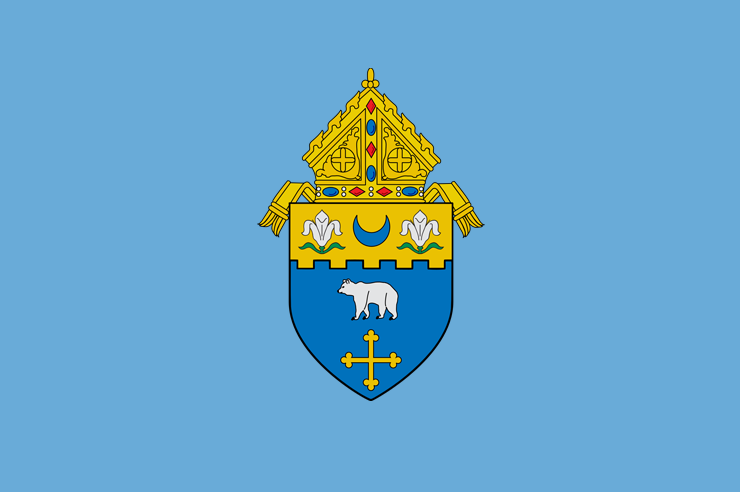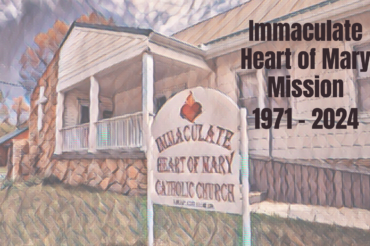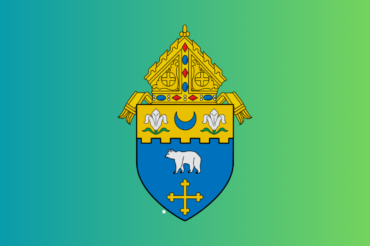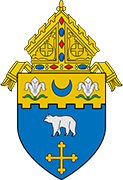March 10 Coronavirus (COVID-19) Liturgical Guidelines
All Future Updates Here
With charity to our brothers and sisters, particularly the elderly, those struggling with respiratory issues or other compromised immunity issues, and to supplement the guidance already communicated to our priests last week, the following common sense and more deliberate actions are to be taken in our parishes, schools and diocesan ministries:
- Just like with the annual flu or common cold, everyone needs to practice good hygiene beginning with washing hands for at least 20 seconds with soap and hot water.
- The use of an alcohol-based anti-bacterial solution/gel is also encouraged.
- Don’t come to Mass if you are sick: Catholics are obliged to attend Mass on Sundays and other holy days of obligation. However, circumstances such as sickness and, for example, severe weather excuse the faithful of this obligation. In the instance that a person suspects being exposed to a contagion like the coronavirus, they as well as their caregivers, are dispensed from attending Mass by Bishop Johnston within the diocese for the duration of the condition’s existence.
Per the advice of the CDC, our elderly and others in determined frail health who are quite susceptible to the coronavirus may likewise seek the same dispensation from Mass from their priest. - Physical contact at Mass: Pastors and parishioners may limit the instances in which there is direct physical contact at Mass, such as avoiding holding hands at the Our Father. The Sign of Peace may be exchanged without contact but with words alone.
- Receiving Holy Communion: Those who are ill, or suspect they may have been exposed to a contagion due to one’s travels or nearness to an infected individual, should refrain from receiving the Precious Blood from the chalice, and only receive the sacred Host. One is not permitted to dip the Host (intinction) as this is an illicit practice that only the priest may perform for a communicant as well as such an illicit practice may contaminate the Precious Blood in the chalice. As more direct contact with saliva and breathing on the Communion Minister’s hand exists in distribution of Holy Communion on the tongue, anyone who suspects that they may be ill as well as anyone who is particularly susceptible to infection or complications should refrain from such reception. At their discretion, pastors may suspend distribution of the Precious Blood beyond the priests themselves.
- Collections: While not possible in all communities and for those parishes possessing collection baskets with long handles, ushers are encouraged to assist the faithful in receiving their contributions for the good of the Church with these handled baskets, further limiting multiple touches of passed baskets at this time of possible contagion.
- Holy Water fonts: Holy water in free standing fonts at the doorways should be changed very frequently, with water being poured into the ground. Baptismal fonts with flowing water and recently installed filters remain sufficient to present conditions. Parishioners are not required to make use of holy water when blessing themselves before or after Mass at this time.
Again, the CDC is a good source of information and helpful practices. Resources for your home are available on the CDC Website.
10 de marzo Guias litúrgicas de coronavirus (COVID-19)
Con caridad para nuestros hermanos y hermanas, particularmente los ancianos, aquellos que luchan con problemas respiratorios u otros problemas de inmunidad comprometidos, y para complementar la guía ya comunicada a nuestros sacerdotes la semana pasada, se deben tomar las siguientes precauciones y acciones deliberadas en nuestras parroquias, escuelas y ministerios diocesanos:
- Al igual que con la gripe anual o el resfriado común, todos deben practicar una buena higiene comenzando por lavarse las manos durante al menos 20 segundos con jabón y agua caliente.
- También se recomienda el uso de una solución/gel antibacteriano a base de alcohol.
- No venga a Misa si está enfermo: los católicos están obligados a asistir a misa los domingos y otros días de obligación. Sin embargo, circunstancias como la enfermedad y, por ejemplo, el mal tiempo excusan a los fieles de esta obligación. En el caso de que una persona sospeche que está expuesta a un contagio como el coronavirus, tanto ellos como sus cuidadores son dispensados de asistir a misa por el Obispo Johnston dentro de la diócesis durante la duración de la existencia de la condición.
Según el consejo de los CDC, nuestros ancianos y otras personas con una salud frágil determinada que son bastante susceptibles al coronavirus también pueden buscar la misma dispensación de la misa de su sacerdote. - Contacto físico en la Misa: los pastores y feligreses pueden limitar los casos en los que hay contacto físico directo en la misa, como evitar tomarse de las manos en el Padre Nuestro. El Signo de la Paz puede intercambiarse sin contacto pero solo con palabras.
- Recibiendo la Sagrada Comunión: Aquellos que están enfermos o sospechan que pueden haber estado expuestos a un contagio debido a los viajes o la cercanía de una persona infectada, deben abstenerse de recibir la Preciosa Sangre del cáliz y solo recibir la Sagrada Hostia. No se permite sumergir la Hostia (intinción) ya que esta es una práctica ilícita que solo el sacerdote puede realizar para un comulgante, así como una práctica ilícita puede contaminar la Preciosa Sangre en el cáliz. Dado que existe un contacto más directo con la saliva y la respiración en la mano del Ministro de Comunión en la distribución de la Sagrada Comunión en la lengua, cualquiera que sospeche que puede estar enfermo, así como cualquier persona que sea particularmente susceptible a infecciones o complicaciones, debe abstenerse de dicha recepción. A su discreción, los pastores pueden suspender la distribución de la Preciosa Sangre más allá de los mismos sacerdotes.
- La Colecta: Mientras no será posible en todas las comunidades y para aquellas parroquias que poseen canastas con mangos largos, se les pide a los ujieres ayudar a los fieles recibiendo sus contribuciones para el bien de la Iglesia con estas canastas con manijas, lo que limita aún más los toques múltiples de canastas pasadas. tiempo de posible contagio.
- Fuentes de agua bendita: El agua bendita en fuentes independientes en las puertas debe cambiarse con mucha frecuencia, vertiendo el agua en el suelo. Las fuentes bautismales con agua corriente y filtros instalados recientemente son suficientes para las condiciones actuales. Los feligreses no están obligados a usar agua bendita cuando se bendicen antes o después de la misa en este momento.
Nuevamente, los Centros para el Control y la Prevencion de Enfermedades (CDC) son una buena fuente de información y prácticas útiles. Ciertos recursos están disponibles en el sitio web del CDC.





